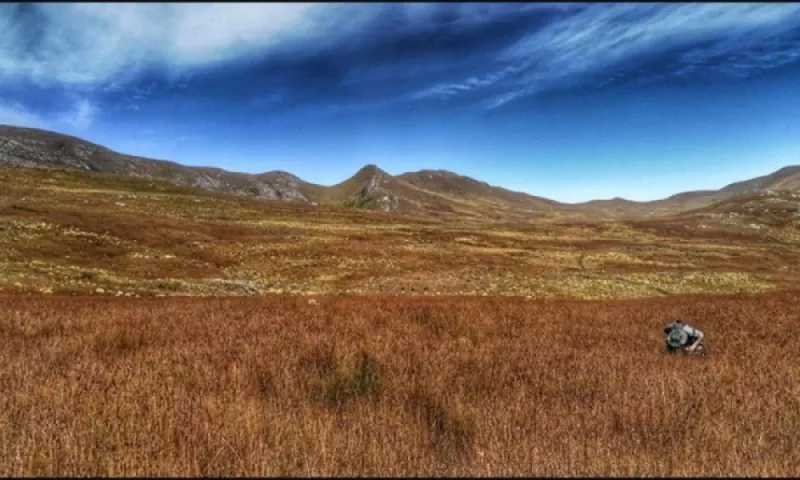The Western Cape’s conservation landscape has grown richer with the declaration of the Mount David Nature Reserve, an 800-hectare sanctuary near Hermanus that celebrates both ecological renewal and responsible land stewardship.
Once a working farm known as Diepgat, this land has been transformed through 17 years of steady rehabilitation led by landowner Antony van Hoogstraten. Where grain fields and grazing livestock once dominated, today wetlands glisten and fynbos stretches unbroken across the slopes — a model of how agricultural land can recover its natural balance when given the chance.
Seventeen Years of Regeneration
After purchasing the property in 2008, Van Hoogstraten began a long-term programme of alien vegetation clearing and ecosystem restoration. The aim was to return the land to its natural state — one that sustains biodiversity and supports the region’s fragile ecological networks.
In 2010, a post-fire survey revealed a Critically Endangered Erica species once thought nearly extinct, underscoring the success of the rehabilitation efforts. What began as a personal project of stewardship has since become a cornerstone of the Western Cape’s Protected Area Expansion Strategy, contributing to water security, soil health, and climate resilience for surrounding communities.
Western Cape Minister for Environmental Affairs Anton Bredell confirmed that CapeNature facilitated the legal process in terms of the National Environmental Management: Protected Areas Act, formally declaring Mount David a Provincial Nature Reserve on 7 November 2025. The process was negotiated and implemented by Bionerds for the Endangered Wildlife Trust (EWT), with Bionerds having independently prepared the property’s Protected Area Management Plan in 2023.
Rare Discoveries Reinforce Conservation Value
In 2020, amid lockdowns, Bionerds researchers surveyed the neighbouring Maanschynkop Nature Reserve in search of the elusive Moonlight Mountain Toadlet (Capensibufo selenophos), a species so poorly known it was listed as Data Deficient. Although absent there, the team made a remarkable find on Diepgat’s upper slopes — a healthy breeding population of the toadlet thriving in restored wetland habitats.
For Alouise Lynch, Director of Bionerds, this discovery validated years of habitat work:
“To have recorded a new breeding locality for the Moonlight Mountain Toadlet, and to work with a landowner so committed to conservation, is perhaps the greatest reward for anyone working with threatened species and habitats,” she said.
Further surveys documented Leopard, Klipspringer, Grey Rhebok, Black Harrier, Verreaux’s Eagle, and Blue Cranes, confirming Mount David as a vibrant ecological corridor.
Stewardship and the Future of Private Conservation
Mount David’s declaration is more than a conservation milestone — it demonstrates the vital role private landowners play in safeguarding biodiversity. With support from CapeNature and the EWT, Van Hoogstraten’s commitment has turned a once-degraded farm into a near-pristine ecosystem that contributes to regional sustainability.
As the Western Cape continues expanding its protected-area network, Mount David stands as proof that productive land use and conservation can coexist — a message with deep resonance for the agricultural community.
Landowners wishing to explore formal protection can contact CapeNature’s Stewardship Team at [email protected]
